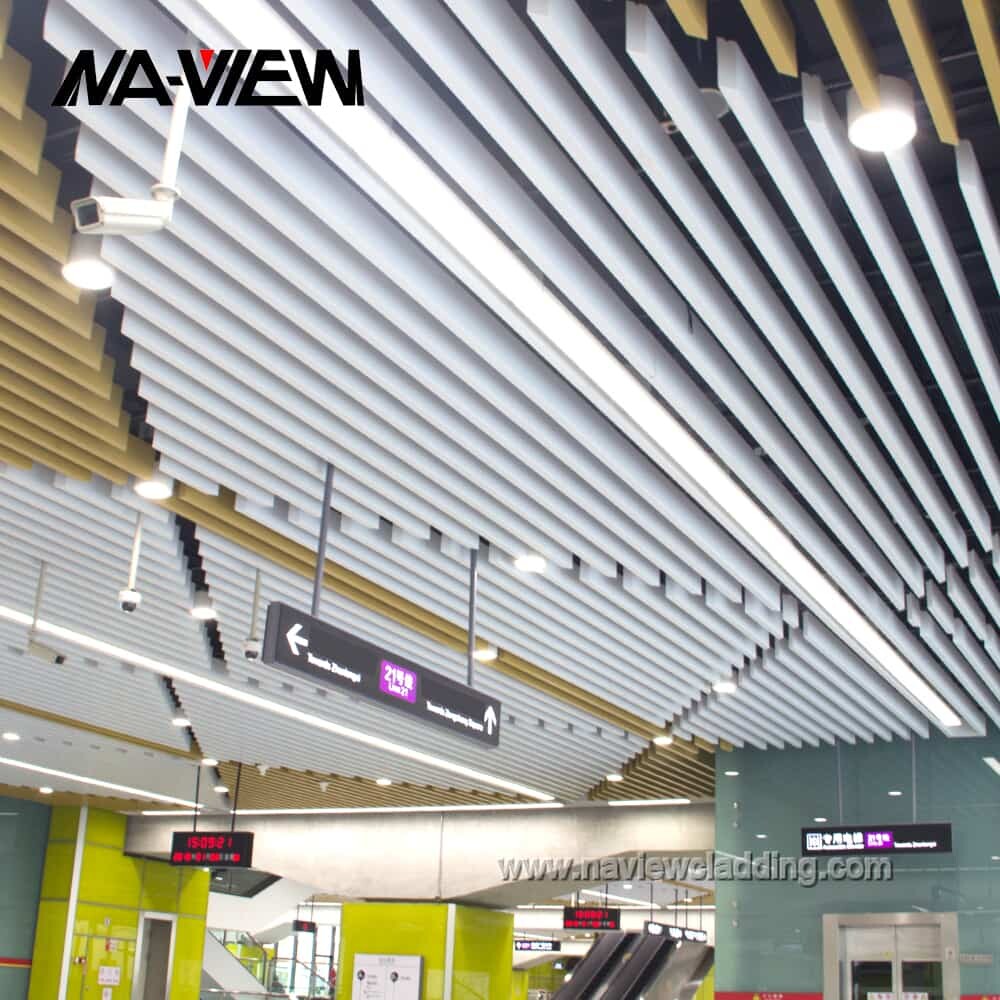Email format error
Email cannot be empty
Email already exists
6-20 characters(letters plus numbers only)
The password is inconsistent
Email format error
Email cannot be empty
Email does not exist
6-20 characters(letters plus numbers only)
The password is inconsistent


In the dynamic realm of architectural design, aluminum metal ceilings have become an immensely popular choice, effortlessly marrying contemporary aesthetics with functional excellence. Crafted from robust aluminum alloy, these ceilings possess unique characteristics that make them indispensable contributors to a wide array of architectural environments.
Aluminum metal ceilings serve as both aesthetic enhancers and structural components, finding applications across diverse spaces, be they commercial, residential, or industrial. Their refined appearance and outstanding performance impart a distinctive atmosphere to buildings. The lightweight design not only facilitates easy suspension installation but also grants architects unprecedented flexibility in design, encouraging creativity and adaptability in various architectural contexts.
The multifaceted characteristics of aluminum metal ceilings are notable. Their lightweight composition simplifies suspension installation, alleviating the load on building structures. Furthermore, their corrosion resistance establishes them as a long-term investment capable of withstanding the ravages of time and diverse environmental conditions. This ensures that these ceilings maintain both their aesthetic appeal and structural integrity across a spectrum of climates.
The popularity of aluminum metal ceilings arises from their inherent flexibility and contemporary allure. Architects and designers are drawn to these ceilings for their ability to be customized into diverse shapes and sizes, catering to the evolving demands of modern design. The contemporary aesthetic seamlessly aligns with the ethos of modern architecture, complementing the prevailing materials and technologies of the present era.
The advantages of incorporating aluminum metal ceilings into architectural designs are manifold. Their durability positions them as resilient components, reducing their long-term maintenance requirements. The lightweight design simplifies installation, minimizing labor and time costs. However, it is essential to acknowledge potential disadvantages, such as the need for additional protective measures in extreme weather conditions, to ensure informed decision-making in their application.
A meticulous comparison of aluminum metal ceilings with other materials provides valuable insights. In contrast to traditional gypsum boards, aluminum metal ceilings offer a lightweight alternative, reducing the burden on building structures. Compared to wood, they exhibit resilience against moisture and decay, making them particularly suitable for environments characterized by higher humidity levels.
Beyond their aesthetic and structural roles, aluminum metal ceilings significantly contribute to enhancing the acoustic environments of buildings. Thoughtfully designed surfaces and material characteristics contribute to effective sound absorption and noise reduction. This acoustic performance renders aluminum metal ceilings ideal for spaces such as offices and meeting rooms, where a conducive acoustic atmosphere is paramount.
Safety considerations are paramount in architectural design, and aluminum metal ceilings excel in this regard. Their structural strength and fire-resistant properties distinguish them in building applications. In emergencies, the fire-resistant nature of these ceilings aids in slowing down the spread of fire, providing critical time for safe evacuation. Adherence to relevant safety standards ensures compliance with building regulations throughout the design and utilization phases.
Tracing the historical evolution of aluminum metal ceilings reveals the fascinating journey of architectural technology and design. From rudimentary applications to the current era of highly customized designs, these ceilings have continually evolved to meet the dynamic demands of the construction industry. This historical perspective offers profound insights into the progression of architectural advancements, acting as a source of inspiration for future innovations.
In summation, aluminum metal ceilings stand as pivotal elements in architectural design, seamlessly blending unique characteristics, modern aesthetics, and versatile functionality. From enduring durability to commendable acoustic performance, they cater to the discerning tastes of architects, designers, and property owners seeking high-quality and innovative architectural solutions. With ongoing technological advancements, aluminum metal ceilings are poised to further elevate their contributions to the ever-evolving landscape of the construction industry.